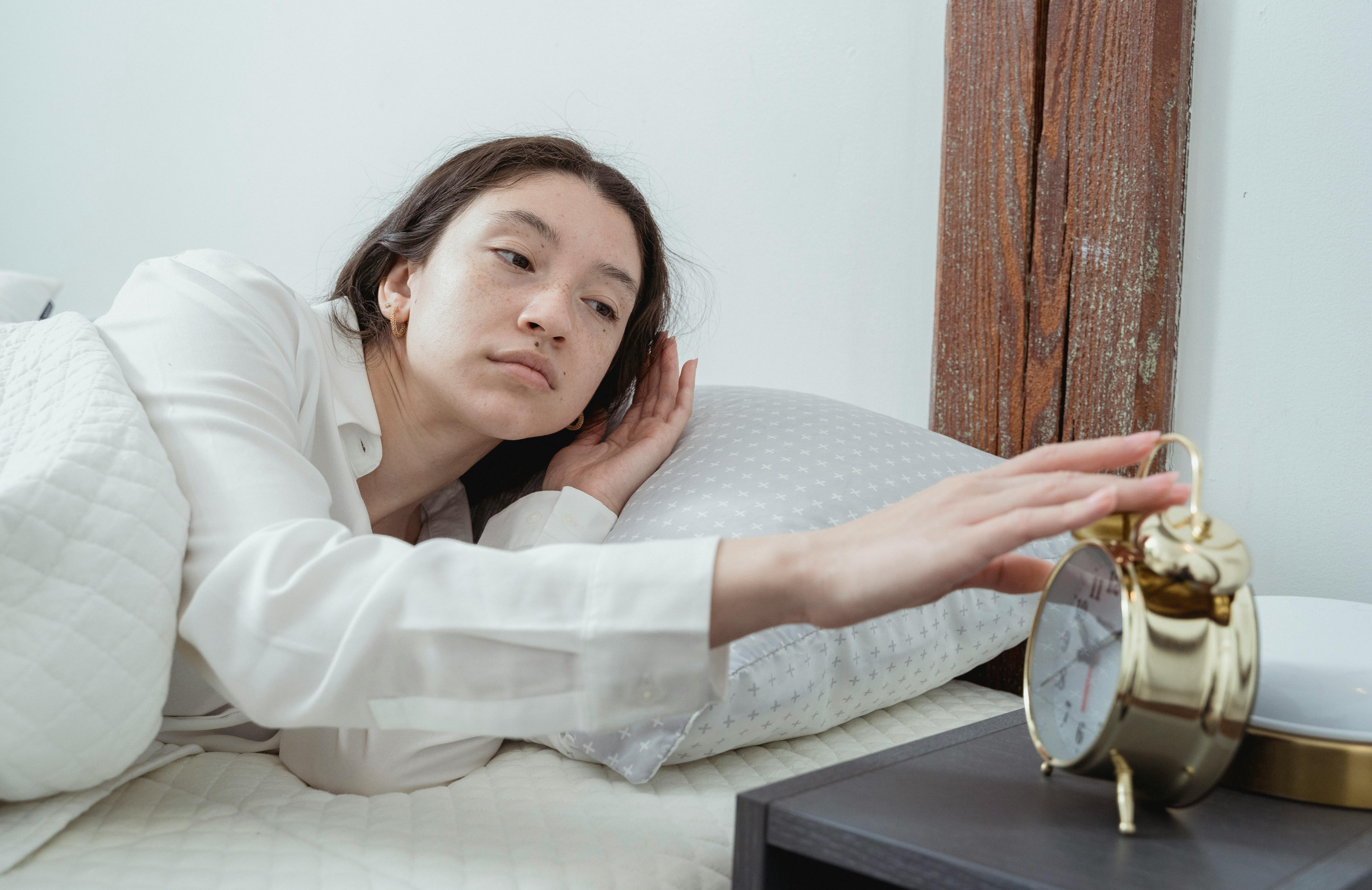
Feeling Constantly Tired? Sleep Might Not Be the Only Reason, Expert Says
Many people wake up tired despite getting enough sleep—and lack of sleep may not be the reason. Shelby Harris, a licensed clinical psychologist specializing in behavioral sleep medicine, explains that fatigue can stem from issues like mood, hormones, or poor sleep quality, not just sleep duration.
“When we think about tired and sleepiness, they’re different issues,” said Shelby Harris. “Tired is this feeling of like, ‘I have no energy.’ Sleepiness is the irrepressible need for sleep.”

A woman sleeps peacefully in bed wearing a pink sleep mask, surrounded by white pillows and bedding. | Source: Pexels
Harris outlined five non-sleep-related factors that can contribute to persistent fatigue:
Mood Issues: Conditions like depression and anxiety can lead to low energy and disrupted sleep, according to the Centers for Disease Control and Prevention.
Poor Quality Sleep: Disorders such as sleep apnea, sleepwalking, or even snoring can degrade sleep quality, regardless of duration.
Inconsistent Sleep-Wake Schedule: Frequently shifting bedtime or wake time by over an hour—known as “social jet lag”—can disrupt energy levels.
Hormonal Changes: Women experiencing hormonal fluctuations, including those related to menstruation or menopause, may feel more drained.
Medications: Certain medications, including sleep aids, antidepressants, antihistamines, and allergy treatments, can increase fatigue.

A woman looks tired as she reaches to turn off a gold alarm clock while lying in bed. | Source: Pexels
Harris recommends starting with basic sleep hygiene to improve energy levels. This includes maintaining consistent sleep and wake times, avoiding screens before bed, and reducing reliance on caffeine or alcohol. She also advises identifying one’s personal sleep need, which may differ from the commonly cited eight hours.
“If you’re someone who has done good sleep hygiene, consistent sleep-wake timing [etc.] for a few weeks and it’s not making a change, then talk with your doctor for sure,” Harris said.
The information in this article is not intended or implied to be a substitute for professional medical advice, diagnosis or treatment. All content, including text, and images contained on contraSpero.com, or available through contraSpero.com is for general information purposes only. contraSpero.com does not take responsibility for any action taken as a result of reading this article. Before undertaking any course of treatment please consult with your healthcare provider.